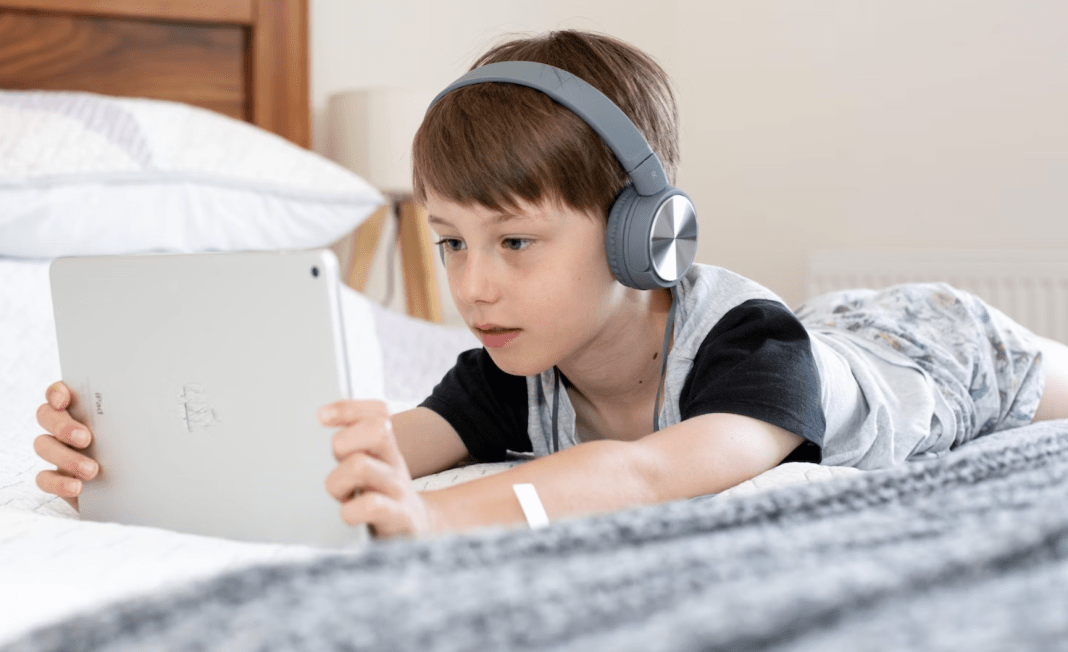
Screens are a part of everyday life in the digital age, but do we know of the effects of screen time for kids? As a parent, you probably use phones, tablets, and TVs to schedule your kid’s activities, gather important parenting resources, and entertain your children while you complete housework.
Most of us think that screens are fairly innocuous. However, some doctors suggest that screens can have a detrimental effect on children’s health and well-being.
As well as being addictive, screens encourage poor posture and may weaken children’s social bonds. Excessive screen time may exacerbate existing vision problems, too.
Posture and Screens
We’ve all been guilty of craning over our phones. However, your child hasn’t yet developed strong neck and back muscles to support their disproportionately heavy head. This may be why “tablet kids” spend so much of their time bent over screens and phones.
Chiropractor Karen Erickson believes that screens can cause poor posture and lead to life-long neck pain. Erickson explains “Poor posture puts stress on the vertebrae and the discs, which can cause pain and headaches.” Over time, this poor posture can be ingrained in your child’s body and cause long-term spinal issues.
Constant scrolling and tapping may cause thumb and hand issues, too. Your child’s body is resilient, but it isn’t designed to type and swipe for hours a day. Too much screen time can irritate the forearm and wrist causing inflammation and tendonitis.
Help your child maintain better posture throughout the day by purchasing them a stand that puts the tablet at eye level. Let them know why correct posture is so important and stick to pre-established screen time rules to prevent long-term damage.
Vision
Most children have perfect sight. Data collected by the CDC’s Vision Health Initiative (VHI) shows that only 6.8% of children have a diagnosed eye and vision condition. However, the VHI predicts that more people will have serious eye and vision conditions in the future due to undiagnosed diseases and diabetes.
Unfortunately, excessive screen time can exacerbate eye conditions and mask the early symptoms of eye disease. As a parent, you should know the warning signs of eye disease:
- Squinting and Rubbing their Eyes: children who spend too much time on screens may suffer from eye strains. However, red eyes and squinting may also be a sign of eye infection or underlying vision problems
- Abnormal Tilting: if your child tilts their head while watching TV or using a screen, they may have an eye misalignment. Tilts may also be due to conditions like refractive errors, droopy eyelid, or uncontrolled eye movements.
- Sitting Close to Screens: children do tend to get absorbed by the screen they are using. However, this may be a sign of nearsightedness (a.k.a myopia).
Keep track of changes in your child’s vision and general screen habits. This will help ophthalmologists spot any underlying issues with your child’s vision. Remember that screens can mask some symptoms, so pay special attention to red eyes and squinting.
Addiction
If you have a phone yourself, you probably know how addictive it can be. However, children haven’t yet developed the ability to self-regulate and may fall victim to screen addiction. Research from the University of Michigan Center for Human Growth and Development suggests that children with a screen addiction exhibit behaviors like:
- Loss of interest in non-screen-related activities
- Preoccupied with screen-based activities
- Low engagement with family activities
- Deceptively “sneaks” onto phones and tablets
These signs of addiction can be difficult to acknowledge as a parent. However, it’s important to recognize that screen time comes with important benefits like improved digital literacy and independent learning.
As a parent, take control of your child’s screen time and only give them their own device when they are able to self-regulate. Start by giving them more open access to family devices and slowly work towards mature, responsible usage together.
Social Bonds
Generations of parents have been warned about the detrimental effect of TVs and computers on social bonds and face-to-face interactions. Fears that screens will turn us into walking zombies are largely nonsensical and shouldn’t lead to a total ban on tablets and televisions in your household.
However, as a parent, you need to ensure that your child spends most of their free time playing with friends IRL. Screens should not replace play dates and sports. Rather, they should be a small part of a larger social education. This will help your child learn to treat others with dignity and respect while ensuring that they have the digital skills they need to succeed in a tech-driven world.
All in all…
Screens play an important part in your child’s development. Kids today need to know how to navigate interfaces and protect themselves online. However, as a parent, you should be wary of the health risks associated with too much screen time. Regularly monitor their eye health and remind them to sit with the correct posture while they scroll. Encourage them to spend the vast majority of their time exploring outdoors with friends where they can build friendships and improve their physical well-being.
















